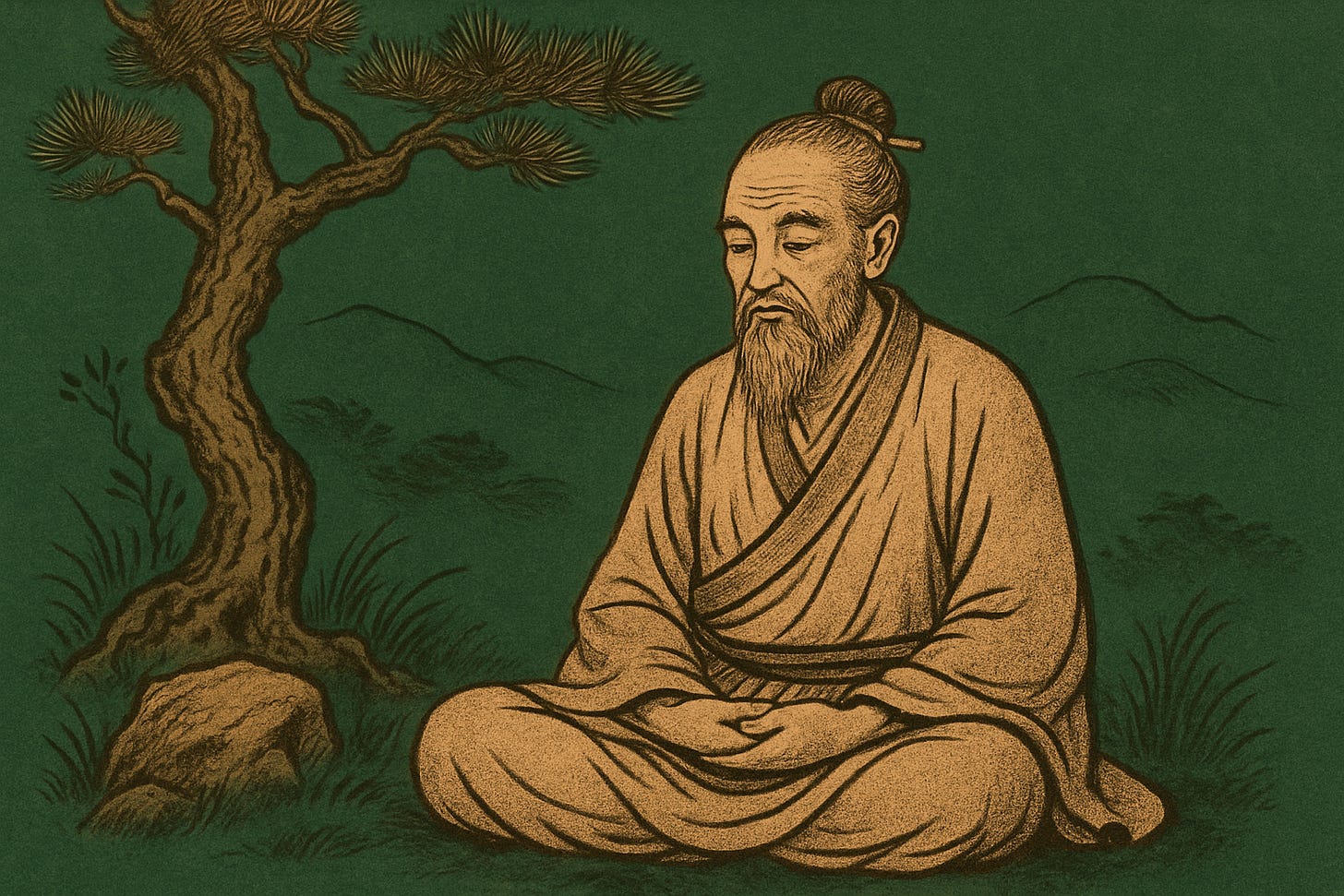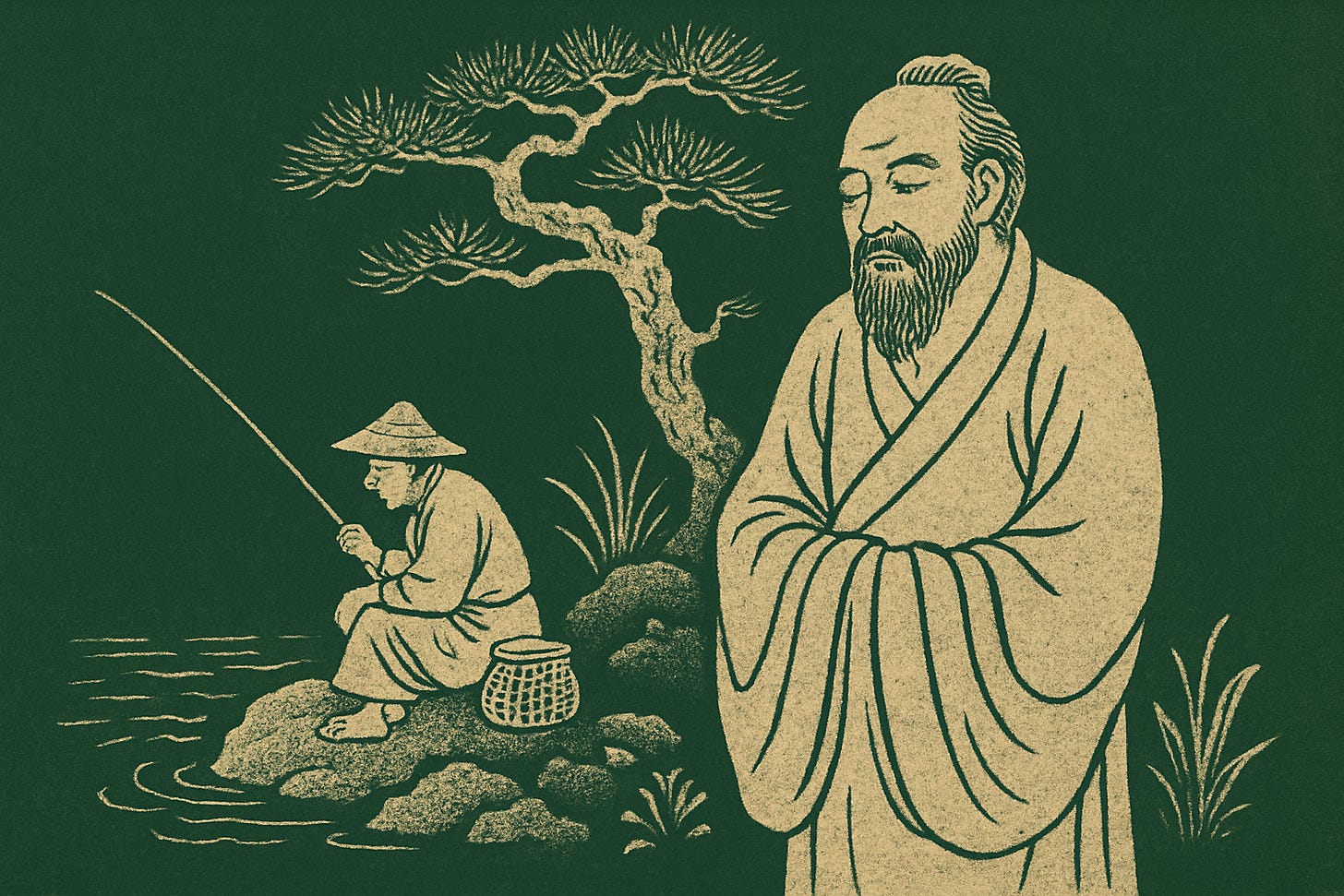When doing less does more
When nothing is done, nothing is left undone
Wu Wei is an ancient Taoist concept that translates loosely as “effortless action.” It sounds like a contradiction, yet it carries one of the most important lessons of all: the power of doing without forcing.
The Tao Te Ching says, “When nothing is done, nothing is left undone.”
This is not a call to laziness but to alignment. It invites us to act in rhythm with life rather than against it. It reminds us that sometimes the most productive thing we can do is to stop resisting.
We see this in nature all the time. Rivers do not fight to reach the sea.
They find their way by yielding. Trees do not rush their growth. They go upward by standing still and absorbing what is given to them. Wu Wei is the same surrender to the natural order.
Alan Watts once said, “Muddy water is best cleared by leaving it alone.”
Our minds work much the same way.
When we overthink, we stir the mud. When we allow space, clarity returns. Wu Wei teaches the power of patience, the ability to let things unfold rather than forcing outcomes.
Practising Wu Wei is not passive. It takes deep awareness and trust. It asks us to know when to act and when to wait. It is the difference between control and harmony. It is choosing presence over pressure.
Bruce Lee captured the essence of it when he said, “Be like water.”
Water adapts to every shape yet remains itself. It moves around obstacles, not through defiance but through understanding. That is Wu Wei in motion.
In our daily lives, Wu Wei might look like knowing when to stop arguing, when to rest, and when to stop pushing for certainty. It might look like trusting that silence can resolve more than speaking ever could.
Wu Wei teaches that the world does not always need our interference. Sometimes it needs our stillness, our listening, our willingness to let life breathe.
To live with Wu Wei is to recognise that flow is not the opposite of effort; it is the refinement of it. It is doing the right thing at the right time in the right way.
When we learn to move with life instead of against it, we discover that ease is not the absence of work but the alignment of it.
And that is the quiet Wu Wei offers.




